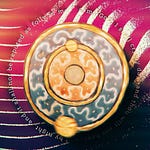Have mercy on us, O Lord, have mercy on us: for we are greatly filled with contempt. (Psalm 122:3 DR)
The condition of man in this vale of tears is—as the prophet Job says—a warfare (cf. Job 7:1), and thus we cannot help but find ourselves assailed on all sides by troubles and temptations and persecutions and difficulties.
Some of these arise from the fallen and broken nature of the world, the natural evils that befall us through the course of life without any malice intended towards us. Others stem from the wickedness of our fellow man or the foul demons who seek our ruin. Perhaps even more immediately, we suffer from the lack of interior integrity, such that our flesh wars against our spirit, as St. Paul says:
For the flesh lusteth against the spirit: and the spirit against the flesh; for these are contrary one to another: so that you do not the things that you would. (Galatians 5:17 DR)
St. Bellarmine gives voice to this woeful condition, pulling back to view the panorama of human misery:
Because man, created to God’s image, placed over all created things by him, very often even adopted by him as a son, and predestined to enjoy the kingdom of heaven, is so despised in this our pilgrimage, not only by men and demons, and so constantly annoyed, not only by the aforesaid, but even by animals, even to the minutest of them, and even by the very elements, that the prophet could say with the greatest truth, not only that we are despised, but that we are “greatly filled with contempt.” For what is there that does not look down upon man, even on the just and the holy, in this valley of tears? (St. Robert Bellarmine, A Commentary on the Book of the Psalms, 122, 3.)
We are not therefore simply filled with contempt, but “greatly filled.” The Vulgate has multum repleti, which has the sense of being filled to overflowing, and since the contents of this filling is contempt, it is clearly negative in connotation. This is drawn out poetically in the parallelism between the two halves of this passage. In the first passage the Psalmist cries out for mercy twice, bracketing the invocation of the Lord between the two petitions: Miserere nostri, Domine, miserere nostri. It is as if the first petition for mercy arises from the extremity of the situation, then the Psalmist comes to himself and remembers to cry for help to the Lord, and then makes the final petition to the Lord.
It is the desperate nature of this double petition for mercy that is then explained by the second half of the passage, which mirrors this double petition. For not only are we “filled” with contempt, but “greatly filled,” which corresponds to the two cries for mercy. After all, a vessel that is “full” cannot be any more full, but the idiomatic strengthening of this phrase almost gives the impression of a vessel that is stretchy and therefore stretched beyond its normal capacity so as to be “greatly” filled. No doubt we have all experienced moments of great trial where it seems like it couldn’t get worse, but then invariably it does get worse, and we find that our capacity for suffering goes even deeper than we realized. Hence the idiom: when it rains, it pours.
In this Psalm of Ascent there is thus a truth lurking in the background: if one wishes to ascend the heights, if one wishes to pursue virtue and grow in the spiritual life—one will inevitably face troubles and persecutions of all kinds, as St. Paul explains to St. Timothy:
And all that will live godly in Christ Jesus, shall suffer persecution. (2 Timothy 3:12 DR)
It is crucial to note that St. Paul directly links this to the will to live a godly life in Christ Jesus: qui pie volunt vivere in Christo Jesu. Thus, if one chooses to live a godly life, one is choosing—as an unavoidable consequence—to endure suffering for that choice. This is not an optional or special case—St. Paul says et omnes: “and all.” The cause of this persecution and suffering is that those who choose to live this godly life have also chosen to reject the happiness that this world affords. Unfortunately, the world does not take kindly to its pleasures and happiness being rejected:
“For we have been much filled with contempt.” All that will live piously according to Christ, must needs suffer reproof, must needs be despised by those who do not choose to live piously, all whose happiness is earthly. They are derided who call that happiness which they cannot see with their eyes, and it is said to them, What do you believe, madman? Do you see what you believe? Hath any one returned from the world below, and reported to you what is going on there? Behold I see and enjoy what I love. You are scorned, because thou dost hope for what you see not; and he who seems to hold what he sees, scorns you. (St. Augustine, Expositions on the Psalms, 122, 5.)
There is a fascinating duality here in our fallen nature.
On the one hand, we fight and claw our way to possess as much as we can, we will fight wars and murder and pillage and sack, we will even cloak such wanton and naked avarice under euphemisms and sophisticated financial instruments.
But on the other hand, it is utterly intolerable to that same avaricious spirit to allow anyone to not also love the same things or to seek after the same lucre. This is of course irrational, for in the zero-sum game of avarice one would think that having fewer people fighting for the same slices of pie would be advantageous for the avaricious. But in reality, the heart can abide competition more than contempt, for those who hold the happiness of this world in contempt—by their very action of doing so—reveal the disorder of that desire, which results in the avaricious man’s heart passing judgment on him. It is this which is utterly intolerable, and thus he will always persecute the righteous, as the scriptures say:
Let us therefore lie in wait for the just, because he is not for our turn, and he is contrary to our doings, and upbraideth us with transgressions of the law, and divulgeth against us the sins of our way of life. He boasteth that he hath the knowledge of God, and calleth himself the son of God. He is become a censurer of our thoughts. He is grievous unto us, even to behold: for his life is not like other men’s, and his ways are very different. We are esteemed by him as triflers, and he abstaineth from our ways as from filthiness, and he preferreth the latter end of the just, and glorieth that he hath God for his father. (Wisdom 2:12-16 DR)
It is said that the devil cannot abide to be mocked, and the same holds true for those who hold fast to the things of this world. When the godly place their happiness on doing God’s will, they by that very action hold in contempt the things of this world. This is not to say that the things that God created are evil or not to be enjoyed with due thanks or in their proper order. However, it is the fixation of the will that matters, for those who understand themselves to be on pilgrimage to the kingdom of God— and walking along this ascent to the holy city—will hold loosely to the things and pleasures of this world,. They will, as it were, travel light, much like a pilgrim takes only what is necessary.
This act of pilgrimage, however, is intolerable to the zeitgeist, for the very act of pilgrimage precludes this world from being considered one’s true home, or its delights the true end of man’s efforts and will. This is itself a judgment on those who do cling to the happiness of this world, but it is a judgment they pass on themselves, for their own hearts condemn them; as the prophet said above: “He is become a censurer of our thoughts.”
The pilgrim on the mountainous ascent in this vale of tears must therefore continually lift his eyes to heaven, pleading for mercy from the Lord because of the oppressions which constantly surround him. But this living of a godly life in Christ Jesus necessarily follows in the path He first walked, with all its concomitant suffering. Yet He did so willingly, as St. Paul describes:
And therefore we also having so great a cloud of witnesses over our head, laying aside every weight and sin which surrounds us, let us run by patience to the fight proposed to us: Looking on Jesus, the author and finisher of faith, who having joy set before him, endured the cross, despising the shame, and now sitteth on the right hand of the throne of God. For think diligently upon him that endured such opposition from sinners against himself; that you be not wearied, fainting in your minds. (Hebrews 12:1-3 DR)
St. Augustine observed above that those who seek happiness in this world might reproach the righteous, for instead of “living in reality,” the righteous hope for things they cannot see. However, the righteous might similarly observe that the “reality” that the denizens of this world prefer is even more ethereal, and can be readily seen even in their own experience, for all those who have come before have been forgotten and their pleasure blown away like the dust:
Consider well if he does really hold it… I have my house, he has boasted himself. Thou ask, what house of his own? That which my father left me. And whence did he derive this house? My grandfather left it him. Go back even to his great grandfather, then to his great grandfather's father, and he can no longer tell their names. Are you not rather terrified by this thought, that you see many have passed through this house, and that none of them has carried it away with him to his everlasting home? Your father left it: he passed through it: thus you also will pass by. If therefore you have a mere passing stay in your house, it is an inn for passing guests, not an habitation for permanent abode. (St. Augustine, Expositions on the Psalms, 122, 5.)
As such, the very impermanence of this world that we intuitively and experientially perceive should lead us to hold loosely to it, rather than tightly, for even in our own experience the possession of its pleasures is seen to be ephemeral. He is therefore no fool who gives up the life he cannot keep to gain one that is eternal, for he sets his eyes on a greater and lasting country:
Yet since we hope for those things which are to come, and sigh for future happiness, and since it has not yet appeared what we shall be, although we are already “sons of God;” for “our life is hidden with Christ in God:” “we are utterly despised,” by those who seek or enjoy happiness in this world. (St. Augustine, Expositions on the Psalms, 122, 5.)
I didn’t have a great concept for this animation, but as I was playing around with Trapcode Mir I created this kind of interesting spinning object, which I thought was kind of chaotic and got at the notion of being filled with contempt. At the very least I thought it looked cool.
I added in a bunch of glows and such—probably too many—but it is what it is.
Enjoy.
Have mercy on us, O Lord, have mercy on us: for we are greatly filled with contempt.
(Psalm 122:3 DR)
View a higher quality version of this gif here:










